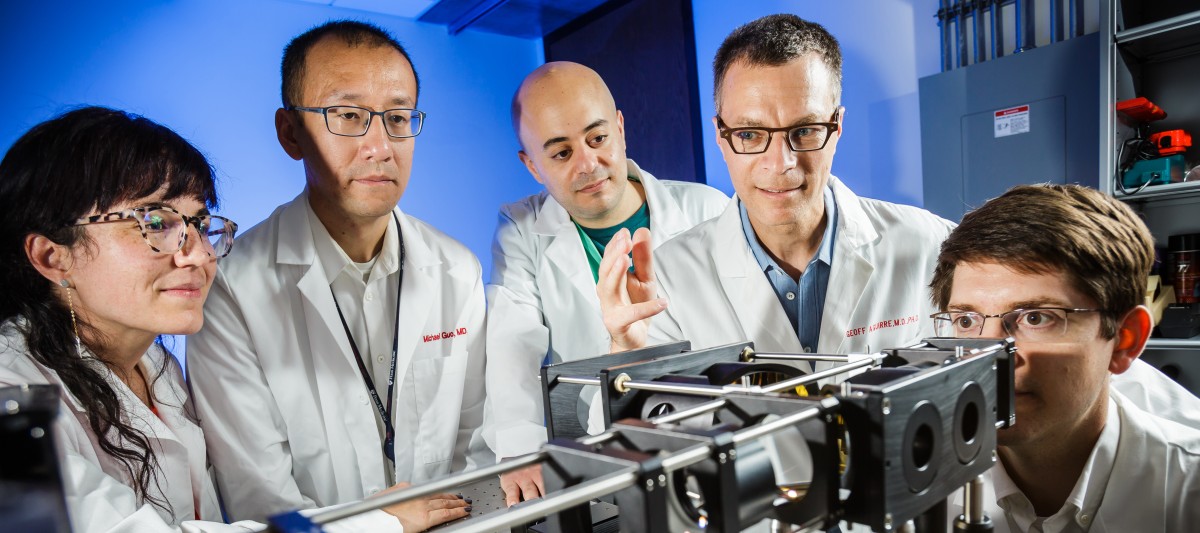
Research
Residents whose career plans include substantial involvement in research activities can benefit from additional scheduling flexibility and career development support within the Penn Neurology Residency.
Residents can declare their interest in the pursuing research experiences as early as the time of their interview for the residency program. Support for science-focused residents begins even before the start of the PGY-1 year, as trainees can arrive on the UPenn campus in advance of the start of their clinical training as part of our innovative Spring Forward program. The goal is to foster academic connections early during your affiliation with Penn, which you can then nurture over the years ahead. For those residents who pursue their PGY-1 training at a Penn-affiliated hospital, we are able to arrange up to 4 weeks of laboratory elective time even during your prelim year. A further 8 weeks of laboratory elective time is available during the PGY-2 year.
Science-focused residents take full advantage of Career Curriculum presentations that concern academic skills that are part of a scientific career. Time and funding is set aside for every resident to attend and present their work at national meetings at least twice during training.
At the start of the PGY-3 year, residents are invited to submit an application to obtain additional academic elective time. The application consists of a focused research proposal that includes aims to be conducted during Residency and Fellowship, and a career development plan that describes training and support from a mentoring team. If appropriate for the project, residents can spend 24 consecutive elective weeks completing their research project during their PGY-4 year.
PGY 3-4 yearly schedule for science-focused residents
| Rotation | Weeks | Call |
|---|---|---|
| HUP Consult | 2 | None |
| HUP Inpatient Neurovascular | 4 | qWeek home |
| HUP Inpatient Ward | 6 | qWeek home |
| HUP Neurointensive care | 6 | None |
| HUP Psychiatry | 4 | None |
| HUP Neuroophthalmology | 2 | None |
| HUP/PAH/PPMC Nighfloat | 8 | NA |
| PAH Consult/Ward | 2 | q2 weeks |
| PPMC Consult | 2 | q2 weeks |
| Wellness | 4 | q2 weeks home |
| CHOP Inpatient | 8 | q1-2 weeks |
| CHOP Outpatient | 4 | None |
| Elective | 42 | None |
| Vacation | 8 | NA |
UE5 and Fellowship support
The application to the Research Track also serves as the basis of applications for additional sources of research and training support. The University of Pennsylvania Neurology Residency holds a UE5 grant from the NINDS to support the development of physician scientists in basic and translational research (previously called the “R25” program). Participating residents are eligible to apply for 80% funding for 1-2 years of a research fellowship at any institution that also holds an UE5 training grant. Additionally, the University of Pennsylvania has numerous T32 training grants from the National Institutes of Health that may also be used to support basic and translational research Fellowships.
An academic, geographically integrated campus
With over 21,000 students and trainees, the University of Pennsylvania is a large research institution. The Perelman School of Medicine alone (the home of the Department of Neurology) is the 3rd largest recipient of NIH funding support in the nation. Within the Department of Neurology, most of the faculty engage in scholarly or research activity, and about one-quarter are tenure-track faculty who operate research laboratories. Department faculty are connected to the graduate groups across campus, and lead several of the University institutes and centers relevant to neuroscience.
- Mahoney Institute of Neurosciences — One of the world’s preeminent institutions for neuroscience research and training. With almost 200 faculty from 18 departments and six schools from across the University, including the Department of Neurology.
- The Cell & Molecular Biology Graduate Group — An interdisciplinary graduate group of over 300 faculty, again drawing from across the University and from within the Department of Neurology
- Center for Neurodegenerative Disease Research
- Center for Brain Injury and Repair
- Penn Brain Science Center
- Center for Frontotemporal Degeneration and Related Disorders
- MindCore
- Center for Sleep and Circadian Neurobiology
- Leonard Davis Institute of Health Economics
- Penn Center for Neuroaesthetics
- Vision Research Center
- Smell and Taste Center